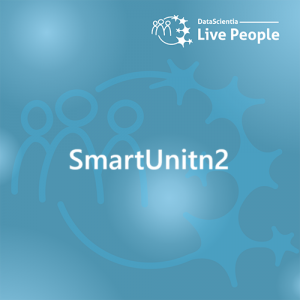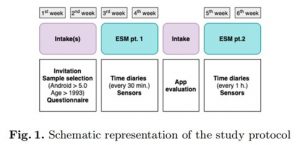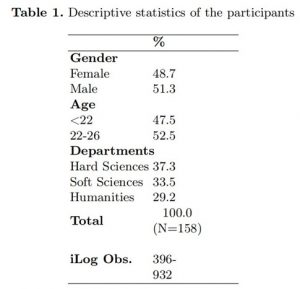
Project Description
 In the Italian university system, academic performance is an important issue that influences students’ drop-out, the time length of acquiring a degree, and the chance of finding a (good) job. Empirical research has shown that student time management between academics and other daily activities is an important aspect that impacts students’ performance. However, students’ time allocation received little interest in sociological research, partially due to surveys usually asking students to report the total amount of time they spend on any given activity. These tools suffer from different problems that may affect the quality of time use data, e.g., data availability and reliability.
In the Italian university system, academic performance is an important issue that influences students’ drop-out, the time length of acquiring a degree, and the chance of finding a (good) job. Empirical research has shown that student time management between academics and other daily activities is an important aspect that impacts students’ performance. However, students’ time allocation received little interest in sociological research, partially due to surveys usually asking students to report the total amount of time they spend on any given activity. These tools suffer from different problems that may affect the quality of time use data, e.g., data availability and reliability.
With the rise of the people-centric sensing paradigm, wherein sensors embedded in smart devices are used to collect massive continuous data streams involving the behavior of humans and social networks. These datasets offer unique opportunities to investigate university students’ diversity and daily routines from a multi-layered perspective.
Project Goal
The SmartUnitn2 (SU2) project is the first iteration of the Smart University (SU) project (was carried out at the University of Trento (Italy) in late 2016). The final goal of the SU2 project (as well as the SU project) is to collect everyday life data from students of different degrees to understand how their spatio-temporal organization affects their academic performances.
The Solution

The dataset collection experiments were conducted based on an ontological representation of the situational context and a set of reference standards, e.g., HETUS and the Big Five. The overall data collection process includes two stages. The first was to collect synchronic data through a set of three standard close-ended questionnaires, which allowed the collection of self-reported general data on material on social practices. The second was to collect diachronic data via a smartphone app called iLog, which allowed us to observe the students’ daily routines.
The first two weeks were dedicated to the sample recruitment. This was performed by sending two initial questionnaires, i.e., an invitation and an assessment of habits. The remaining month was dedicated to collecting data through the iLog app installed on the student smartphones. A help-desk was active during the data collection period to solve students’ problems.
Case Study: SmartUnitn2 data collection experiments at University of Trento
The case study SU2 project (as well as the SU project) is to collect everyday life data from students of different degrees to understand how their spatio-temporal organization affects their academic performances.
Project Community Webpage:
Output Datasets:
Statistics about Output Dataset
The SU2 project collect the personal data about the everyday life from 318 students at University of Trento by i-Log applications installed on their smartphones. Then the SU2 dataset filtered out the personal data from 158 university students.
The SU2 Dataset contains:
- synchronic data about profile, e.g., demographics, routines, personality.
- diachronic data over a period of four weeks, including data from 34 sensors, both hardware and software, e.g., Accelerometer Event, Battery Charge Event, Cellular Network, which are associated to around 100+ thousand self-reported annotations from participants.
Acknowledgements
This research has received funding from “DELPhi – DiscovEring Life Patterns” funded by the MIUR (PRIN) 2017.
Publications and Research
Key Paper:
Fausto Giunchiglia, Matteo Busso, Mattia Zeni, Ivano Bison. (2022). A survey on students’ daily routines and academic performance at the University of Trento.
Available at: https://iris.unitn.it/retrieve/e3835199-ed48-72ef-e053-3705fe0ad821/2022_DataScientia_LivePeople_SmartUnitn2.pdf









